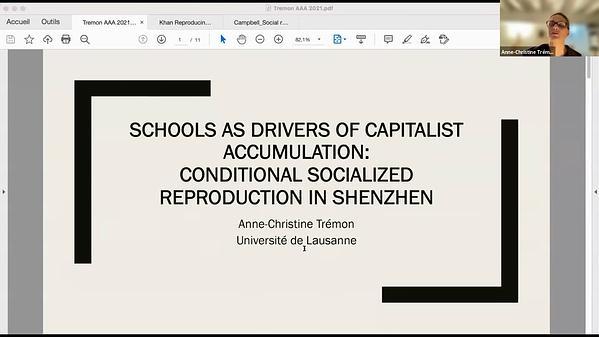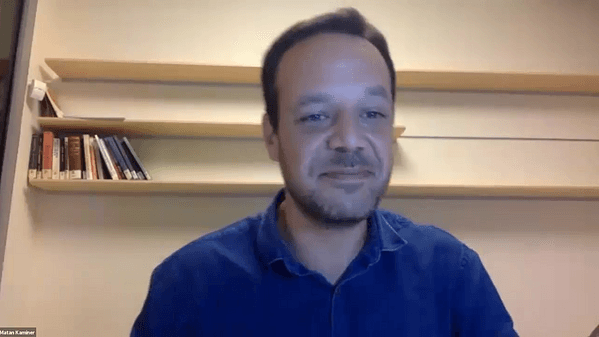Would you like to see your presentation here, made available to a global audience of researchers?
Add your own presentation or have us affordably record your next conference.
keywords:
labor and work
reproduction
capitalism
What makes domination and inequality persist over time? New interventions in social reproduction theory (Bhattacharya 2017; Gimenez 2018; Ferguson 2020; Vogel 2013) combine the analytic insights of Marxism and feminism in laying bare the social relations and interdependencies that sustain the continued accumulation of surplus value. They follow in the footsteps of economic anthropologists who have long advocated for the re-centering of social reproduction in the analysis of concrete fieldsites and occurrences (Collier & Yanagisako 1987; Harris &Young 1981; Narotzky 1997; Smith 1999; 2018). A social reproduction approach looks at the processes and activities involved in securing the continuity of a given society. With particular interest in capitalist societies, it identifies the universal dependence on the market for the reproduction of human life as a source of coercion and domination. It also refocuses attention on nonmarket domains that are made invisible by a too-narrow focus on market relations, even as they make these relations possible. Although the traditional focus of social reproduction theory is on the unwaged, feminized domestic labor that Marx had neglected, it does not assume the home as the singular site of reproductive labor, or the housewife as its sole performer. Rather, social reproduction theory traces diverse forms of social oppression in the reproduction of capitalism, including migrant labor and varieties of public or commodified childcare, healthcare and eldercare. In a related but distinct sense, “social reproduction” also refers to the political and ideological mechanisms by which group privileges and particular power structures are reproduced as part and parcel of societal reproduction (Althusser 2014; Bourdieu 1977). Finally, the Marxist anthropology of the 1970s and 80s (Godelier 1977; Meillassoux 1981; Ong 1988; Taussig 1980) presents many congruent lessons on the persistence of non-capitalist social forms within contemporary societies. Our panel aims to tie these strands together, making the case for ethnography’s potential to enrich the theoretical field by exploring empirical intersections that shed light on the concealed forces sustaining domination and inequality. With fieldsites spanning from China through Myanmar, Malaysia and Pakistan to Israel and Germany, and zeroing in on the practices of parenting, schooling, colonization, migration, real estate dealing, industrial production, family farming and retail sales, we hope to demonstrate the contribution of economic anthropology in general, and social reproduction theory specifically, to understanding the dynamics underlying and linking painfully familiar phenomena.

